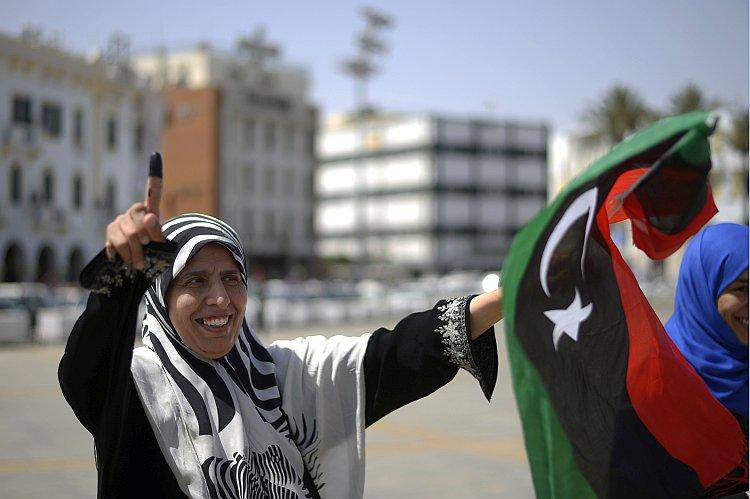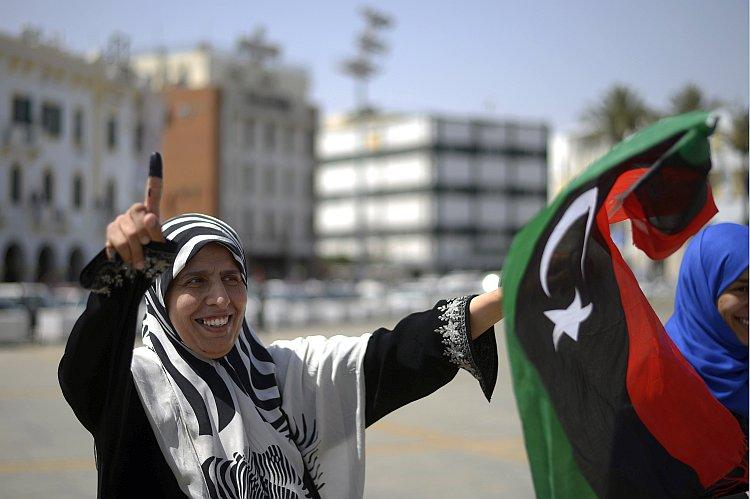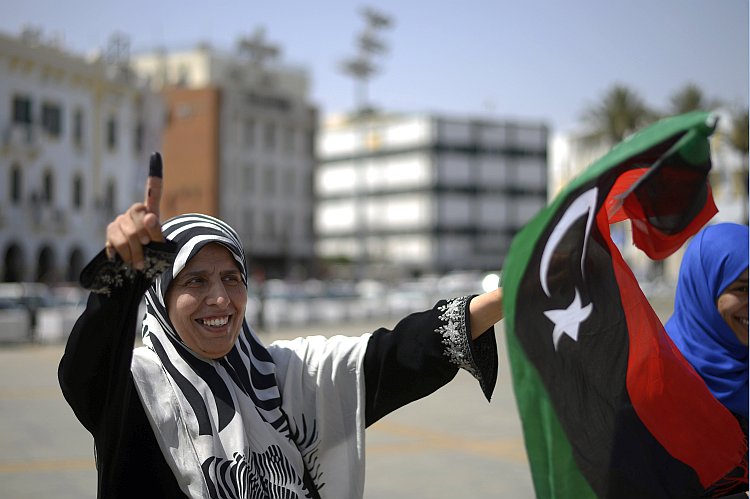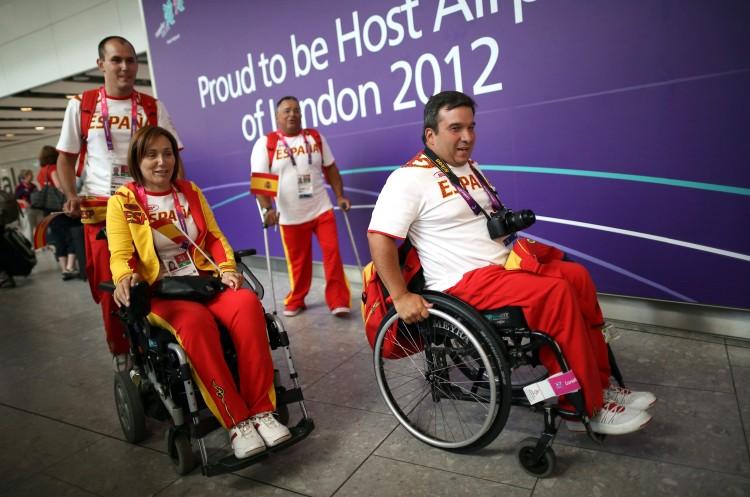Libya’s first post-Gadhafi elections on Saturday have largely been declared a success by the international community, with a high voter turnout and less disturbances than many had feared. When the results are in, however, the newly elected congress will face the difficult task of drafting a constitution that can keep the country together amid strong regional tensions.
Libya’s first election since 1964 seems to have been a success, registering some 60 percent voter turnout, according to the electoral commission. The European Union, which monitored the vote, as well as the White House, sent congratulatory messages on Saturday.
Libyans have “voted peacefully and free of fear and intimidation,” according to a statement by Alexander Graf Lambsdorff, who heads the EU election monitoring team.
“On behalf of the American people, I extend my congratulations to the people of Libya for another milestone on their extraordinary transition to democracy,” said President Barack Obama in a published statement.
On Sunday, Al-Jazeera reported that the major liberal party, National Forces Alliance, under former Prime Minister Mahmoud Jibril, claimed to be leading in the polls, but preliminary results are not expected until Monday and definitive results not before Wednesday.
Media reports have generally shown ecstatic Libyans celebrating the historical occasion. But in the eastern part of the country, which played a leading role in the uprising against Gadhafi, protests were held and calls for boycotts heard before the vote.
On Friday, gunmen near Benghazi fired on a helicopter carrying election officials; on Saturday, militants firebombed several polling stations in the region. There were also reports of burning ballots in Benghazi and in Ajdabiya, about 90 miles away, one person was reportedly shot dead.
The main source of discontent in the east is the distribution of the 200 seats in the new parliament, the General National Congress (GNC). The GNC will replace the National Transitional Council (NTC), which has ruled Libya since the fall of the old regime.
The GNC will select a president, prime minister, and cabinet, as well as a constitutional committee to draft a new constitution.
The more populous west will have 100 seats, while the east will have 60 and the south 40. This has angered many Libyans in the east and south.
The distribution discontent may give rise to an even greater issue of national unity.
Since Gadhafi’s death, a federalist movement has been growing, which wants to see more power given to the regions. Especially Eastern Libya, traditionally referred to as Cyrenaica, may not agree to a situation in which they feel that Tripoli once again rules them. Benghazi, Libya’s second most important city, is located in the east, and was the focal point of the uprising.
Some outright separatists even declared autonomy for Cyrenaica in March, but this has so far not led to any concrete actions.
In a commentary on AllAfrica.com, Libya scholar Jason Pack of Cambridge University, argues that the new government is an absolute necessity for Libya, and comes just in time. The NTC, he writes, is becoming increasingly unpopular due to its failure to deliver on most counts, such as disarming the militias, creating a functioning justice system, providing basic services, and getting the economy up and running.
Nonetheless, Pack says the importance of the elections should not be overstated. The GNC will still have to deliver where the NTC has failed. The new government will have to make hard decisions and follow them up with decisive actions. The fact that the newly elected congressmen were raised in the highly erratic political culture under Gadhafi makes it hard to predict how well they will be able to govern.
Furthermore, much of Libya’s future rides on what the new constitution will look like. If federalist voices are strong enough when drafting it, there is a risk that national unity will not be forged, and the west, east, and south will drift apart, according to Pack.
The Epoch Times publishes in 35 countries and in 19 languages. Subscribe to our e-newsletter.






